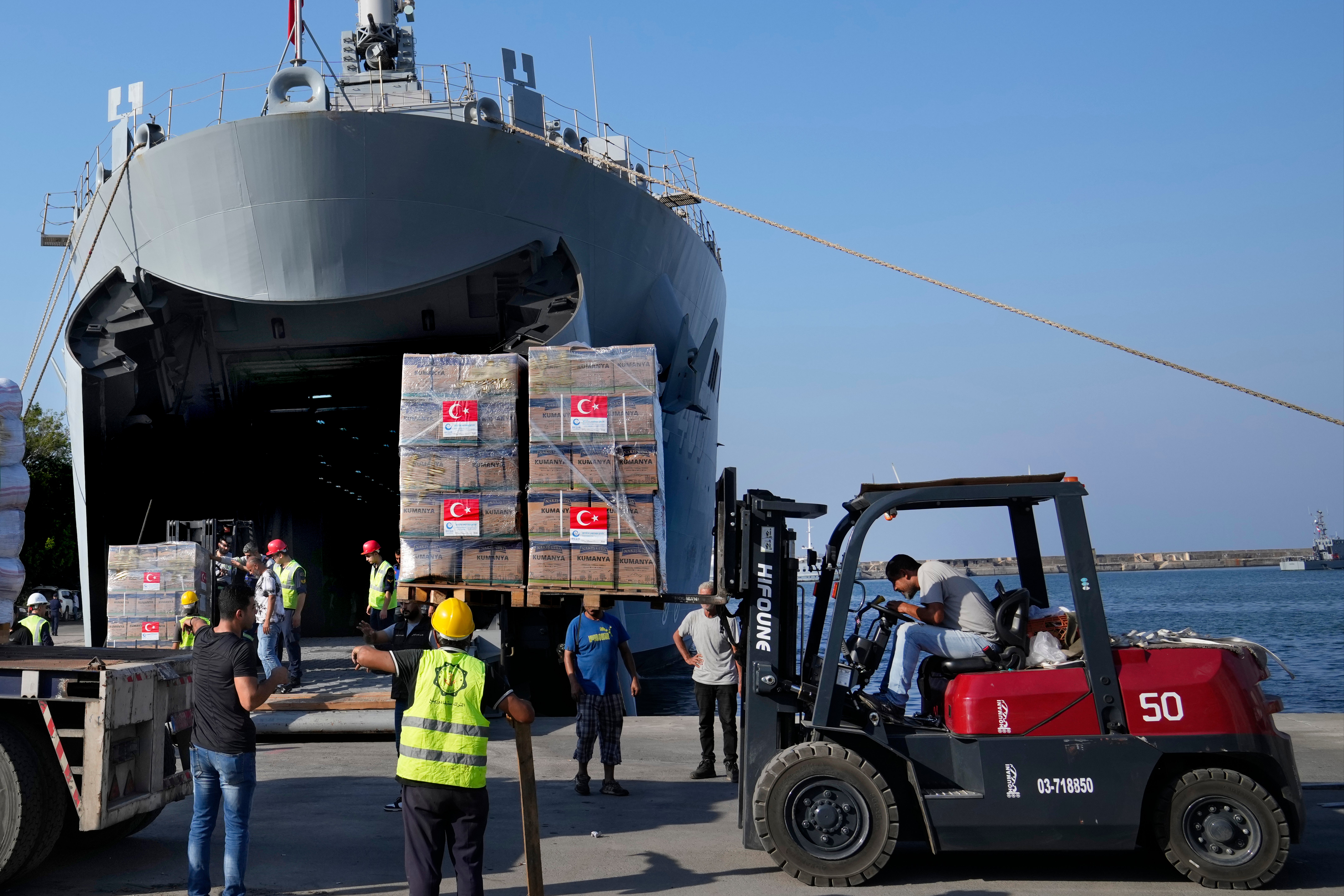UN official appeals for Lebanon's ports and airport to be spared as Israel presses its offensive
A top United Nations official says that he is concerned that Lebanon’s ports and airport might be taken out of service, with serious implications for getting food supplies into the county

Your support helps us to tell the story
From reproductive rights to climate change to Big Tech, The Independent is on the ground when the story is developing. Whether it's investigating the financials of Elon Musk's pro-Trump PAC or producing our latest documentary, 'The A Word', which shines a light on the American women fighting for reproductive rights, we know how important it is to parse out the facts from the messaging.
At such a critical moment in US history, we need reporters on the ground. Your donation allows us to keep sending journalists to speak to both sides of the story.
The Independent is trusted by Americans across the entire political spectrum. And unlike many other quality news outlets, we choose not to lock Americans out of our reporting and analysis with paywalls. We believe quality journalism should be available to everyone, paid for by those who can afford it.
Your support makes all the difference.A top United Nations official said during a visit to Beirut Saturday that he is concerned that Lebanon's ports and airport might be taken out of service, with serious implications for getting food supplies into the county, as Israel continues its offensive against the Lebanese militant group Hezbollah.
“What I have seen and heard today is devastating, but the sense is that this can get much worse still, and that needs to be avoided,” said Carl Skau, deputy executive director of the U.N. World Food Program, in an interview with The Associated Press.
He appealed for “all diplomatic efforts possible to try to find a political solution” to the war and for supply lines to remain open.
“We have huge concerns and there are many, but one of them is indeed that we need the ports and we need the supply routes to continue to be able to operate,” Skau said.
In Gaza, where Israel has been at war with Hamas since the Palestinian militant group launched a deadly incursion into southern Israel a year ago, hunger has skyrocketed as humanitarian organizations have complained of major obstacles to getting food and other supplies into the blockaded enclave.
Skau said he believes that Israeli authorities had given “commitments” that in Lebanon, the ports and airport would not be taken out of commission.
“But of course, this is a very changing environment. So we don’t take anything for granted,” he said.
In recent weeks, Israel has escalated its aerial bombardment and launched a ground invasion in Lebanon.
About 1.2 million people are displaced in Lebanon, according to government estimates, of whom some 200,000 are staying in collective shelters, where the WFP is supplying them with meals.
Skau noted that food prices have already increased as a result of the conflict, although Lebanon's sole international airport and its main sea ports are still functioning. The WFP had stocked up enough food to supply 1 million people -- about one-fifth of Lebanon's population -- for up to a month, he said, but now is trying to build up supplies that could feed that number through the end of the year.
“We will, of course, be having to restock, and for that, the ports will be critical and other supply lines,” he said.
For instance, the agency has been bringing food in from Jordan through Syria into Lebanon by land, he said. Earlier this month, an Israeli strike on the road to the main border crossing between Lebanon and Syria cut off access to that crossing.
Since the Masnaa crossing was struck, people fleeing Lebanon have continued to cross on foot, while vehicles -- including those bringing supplies for the WFP -- have had to use another crossing in the far north of the country, making the journey more arduous and expensive.
Skau appealed for the Masnaa crossing to be reopened.
Lebanese General Security, which oversees border crossings, has recorded 320,184 Syrians and 117,727 Lebanese citizens crossing into Syria since Sept. 23, when the major escalation in Israeli airstrikes in Lebanon started.
The influx comes at a time when the WFP has reduced its food assistance in Syria as a result of funding shortages.
“We’ve gone over the past two years from assisting some 6 million people to around 1.5 (million),” Skau said. “And with that, of course, our capacity has been tightened and now we need to scale up again.”